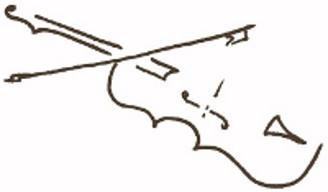A question of "how do you... ?" becomes a
task for Google, these days. In addition to spending
many hours on the internet searching and asking advice of forums, I
asked folks at the yacht club what their opinion was.
What I wanted to know was, how to access the mast
tip-top after it was stepped the first time in the year? It seems
that no matter how diligent I think I am, I always seem to
forget to mount or adjust something way up there before I
step the mast. The first year, I just did without the tiptop
fly. The second year, I rigged a boatswain's sling out of
some line at hand and nursed rope burns of a different color for
the rest of the year. By the 3d year, I had read about
these wonder lusts that beached their boat and "careened" it to
access the bottom for maintenance. I began to think that I might
be able to careen it at the dock and access the top. The lake I
sail is land locked and no tide to use to beach her. Since I had
no experience doing this sort of thing, I started asking
questions. I wanted to have some idea of what was going to go
wrong. I certainly got some idea. Some said the keel
ballast would exert enough righting force to prevent me from tipping
the boat, or at least to break the mast. Some said the boat would
try to scoot away from the dock and I'd have to secure her fast to the
dock. Some said that I'd better watch for the center of heel
because once I past that, over she'd go and swamp. Some said, next
time, I should make a list and check it twice, if more than twice was
needed then I shouldn't go on the water with any kind of
watercraft. Several reported that they had careened on the beach
or careened a boat stranded on a sand bar in low water. No one
reported experience careening from the dock. And on, and
on... .
Needless to say, but I will, I forgot to put a
spreader boot on and secure the port upper shroud to the
spreader. I didn't have to access the tiptop, but it was farther
up than I wanted to shimmy. Nothing ventured, nothing
gained. So, on an overcast day, the only day off to do this for
the foreseeable future, I decided to address my problem. I would
use the main sheet and the main halyard and tie it off as far as I
could. There was about 40' from the end of my cross pier to the
other.


I secured the boat with spare lines here and there to prevent it from
slipping away from the dock, as was opined it would. Did I
mention that my day off was a Wednesday or something, I was alone and I
had to act as cranker of the main sheet and lookout for the unexpected?
I cranked for a bit and an uneasy feeling came over
me. I stopped and looked up, "Well, thats reassuring." I said to
myself. It was obvious that the boat was starting to roll toward
me. Then I decided to take a closer look. I didn't need to
tie off the boat to prevent her slipping away, I needed every bumper I
had to prevent her from crawling under the dock. The force the
keel applied was to right her. She was trying to maneuver herself
under the mast. As the mast moved toward me/the dock, so did the
boat. No one predicted this. Once the boat was protected
from the dock, I proceeded. The next issue was to roll her over
to the point of not quite swamping her. Once I had her as far as
I wanted to go, I still couldn't reach the spreader. I could if I
had a ladder. So success, sort of.


As I righted her, disassembled the rigging and
prepared all the necessary standing and running rigging, I found
another "oops". The spinnaker halyard was not up there in the
sheave where it belonged. Well, from the success of the
careening, I knew I did not need to careen her again. I would not
be able to reach the spinnaker sheave fully careened at the dock.
I hadn't taken the ladder back yet so I rigged the main halyard to
the top of the ladder and hauled her up so that I could shimmy up
the mast to reach the ladder and using the ladder, climb high enough to
reach the sheave. It worked and fortunately, no pictures of this
survived.
One thing is assured. Not that I won't forget
something in the future, but now I know how and Pearson Ensign will
careen at the dock.
 Isaac Gilmore Fiddles
Isaac Gilmore Fiddles Isaac Gilmore Fiddles
Isaac Gilmore Fiddles